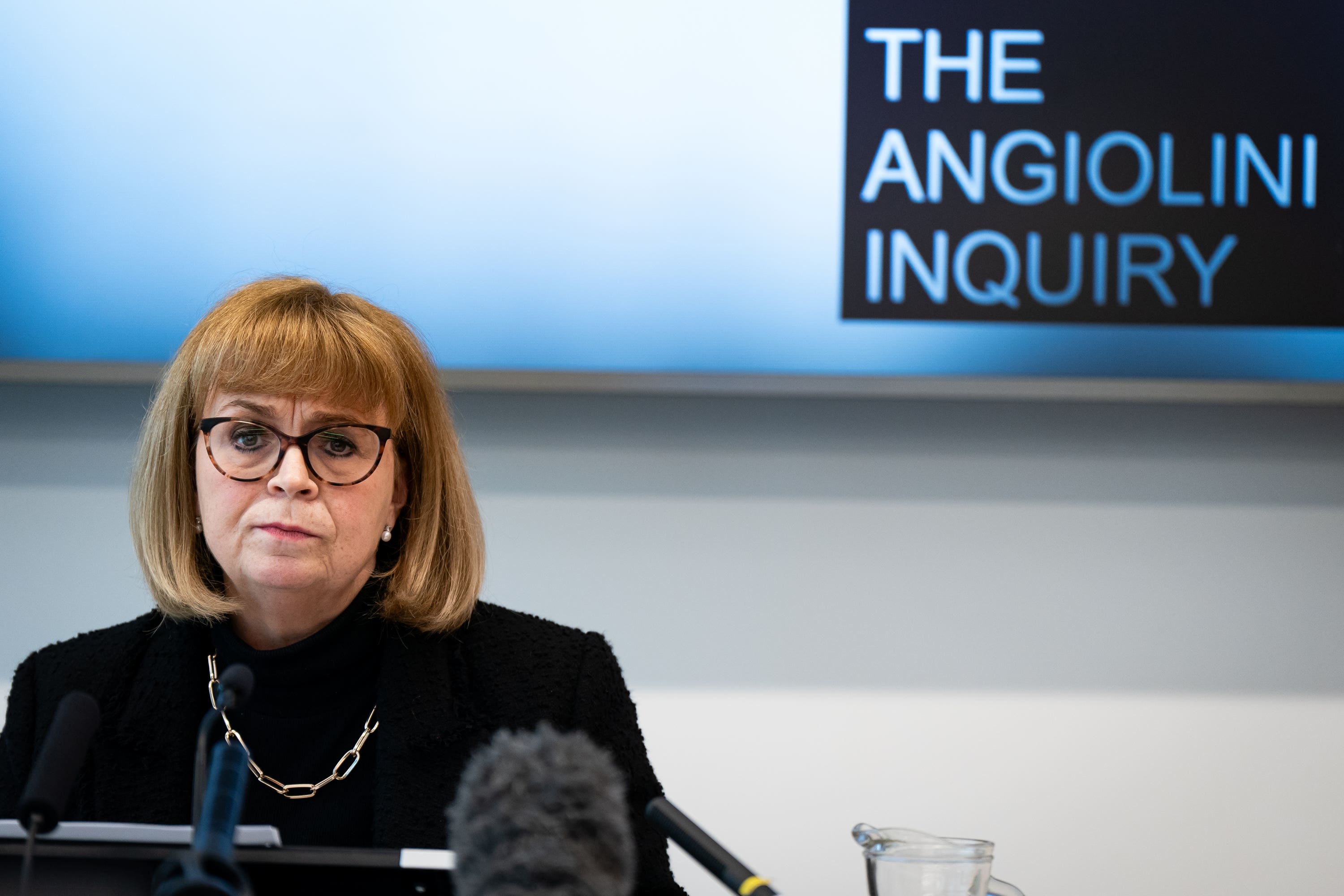Government to review handling of ‘flashing’ cases in criminal justice system
The Home Office said it would also launch a public campaign to encourage victims to come forward and commission research on flashing and re-offending.

A full-scale review into the handling of cases of “flashing” will be undertaken by the Government following an inquiry into the murder of Sarah Everard by Wayne Couzens.
The Home Office said it would also launch a public campaign to encourage victims to come forward and commission research on flashing and re-offending after the Government accepted all recommendations made by the Angiolini inquiry.
The first part of the inquiry, which was published last month, investigated how serving Metropolitan Police officer Couzens was able to abduct, rape and murder Ms Everard, and whether any “red flags were missed” earlier in his career.
It found his history of alleged sexual offending went back nearly 20 years before he committed murder, including a series of incidents where he was accused of flashing.
Alongside calling for an overhaul of police vetting and recruitment, the inquiry recommended a fundamental review of the way masturbatory indecent exposure is treated within the criminal justice system, and research to establish if there is an evidence-based link between active masturbatory indecent exposure and subsequent contact offending.
It also recommended launching a public awareness campaign to emphasise indecent exposure and sending unsolicited photographs of genitals amounts to a criminal offence, and to boost victims’ confidence to report such crimes.
The work will be carried out across the Home Office, Ministry of Justice, College of Policing and National Police Chiefs’ Council (NPCC).
The NPCC and College of Policing have also committed to addressing the remaining recommendations in the inquiry around police culture and more robustness in police vetting.
Home Secretary James Cleverly said: “Sarah’s murder was sickening and, tragically, avoidable. She was fundamentally failed by the institutions which were meant to keep her safe.
“Since her death, huge strides have already been taken to root out officers not fit to wear the badge and bolster safeguards to prevent the wrong people joining the force.
“Now we will work with policing partners to understand the link between indecent exposure and an escalation in behaviour to ensure the right measures are in place to catch more criminals, earlier.”
Lady Elish Angiolini KC, chairwoman of the inquiry, said: “In accepting all my recommendations, Government and policing have shown they recognise the need for change and are committed to doing everything they can to ensure that there isn’t another Wayne Couzens operating in plain sight.
“I trust that work to implement the recommendations will begin without delay and, as I proceed with part two of the inquiry, I look forward to progress updates from those responsible.”
NPCC chairman Chief Constable Gavin Stephens said: “The Angiolini inquiry made for shocking and sombre reading, a view which I know is shared across policing.
“We must ensure there is nowhere to hide in policing for wrongdoers, that we lead a police service which the public, and especially women and girls, can trust to protect them, and that we are uncompromising on the high standards our communities deserve.
“Along with my colleagues and fellow police leaders, we recognise this as an urgent call for action and we are committed to bringing lasting, impactful change for future generations.”
Bookmark popover
Removed from bookmarks